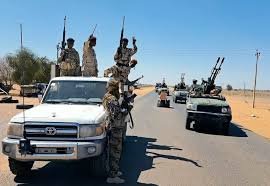In eight months since President Bola Ahmed Tinubu took the saddle at the helm of the Nigerian Presidency, 2,423 Nigerians have lost their lives, while 1,872 have been abducted. This disturbing data was disclosed by a coalition of 49 civil society organizations under the Joint Action Group, and the Community of Practice Against Mass Atrocities. The disclosure of these figures comes as Nigerians continue to groan over the upsurge in the activities of kidnappers, armed bandits and other outlaws undermining national peace and security.
The coalition therefore provided insights about the factors responsible for the rising wave of insecurity, just as it proffered solutions to end the rising wave of crimes, criminality and atrocities being committed against Nigerians. The groups therefore expressed concerns that the last 15 years, insecurity in Nigeria has spiraled due to a variety of violent phenomena, including but not limited to terrorist activities in the entire northern region of the country, banditry’ in the North West, farmer-herder violence in the Middle Belt. The CSOs also listed separatist agitations in the South East, piracy in the southern coast of Nigeria, inter-communal attacks, political violence, cult-gang violence and kidnapping as other manifestations of the insecurity ravaging the country.
Consequently, the civic organizations lamented that these manifestations of insecurity plaguing Nigeria have jeopardized the security and wellbeing of Nigerians, and have progressively deteriorated over the years. They said: “endemic insecurity has persisted over the last three administrations, including that of President Buhari, who as a former military general, had gained public trust to run as president by promising to curb the then fledgling insecurity.
“Mass atrocities fatality tracking across the country by Nigeria Mourns reveals that in President Buhari’s second term alone (2019 to 2023), at least 24,816 Nigerians lost their lives, and at least 15,597 persons were abducted. This alarming trend has continued in spite of President Bola Ahmed Tinubu’s assurance at the beginning of his presidency in May 2023 to tackle insecurity.
“It has now been 8 months since President Tinubu took his oath of office and yet, things have failed to improve. Our tracking shows at least 2,423 people have been killed in mass atrocities-related incidents and at least 1,872 persons were abducted since the beginning of President Tinubu’s administration till January 26, 2024.”
READ ALSO: Insecurity: Presidency Faults Atiku’s Call For Tinubu’s Resignation
The groups further decried what they described as the reticence of government to the trend of insecurity, including the anomaly of payment of ransoms to kidnap kingpins. Subsequently, the CSOs criticized the government for being quick to freeze the bank accounts of donors and recipients who funded the #EndSARS, but failed to take concrete action to protect citizens against organized crime.
They said: “We are equally dismayed by the willingness of some political leaders and politically exposed persons to publicly support ransom payments; and question their values and alliances. Their actions and utterances reflect a lack of faith in the system of which they are guardians, and their nonchalant attitude towards the potential consequences, including directly funding future attacks. We consider that their stance emboldens perpetrators and further erodes the trust of citizens in their government’s capacity and sincerity.”
On how to stem the current tide and address the threat of insecurity, the coalition called on the government to fulfill its constitutional imperative of safeguarding the lives of all citizens by declaring a state of emergency on kidnapping and other forms of terrorism.
The CSOs similarly called for enhancement of the Nigeria’s security infrastructure by conducting an audit of the responsibility matrix within security agencies and departments of government, to bolster their capabilities and deploy technology to effectively address the evolving challenges of insecurity. Other solutions proposed include; the prompt prosecution of the 400 sponsors of terrorism arrested under the Buhari regime, and the prosecution of those responsible for the misappropriation of the $460 million earmarked for the provision of CCTV cameras in the Federal Capital Territory and implement more decisive measures to promptly secure the release of all abducted victims. Similar measures proposed include the need to create a register of victims of abductions and other forms of mass atrocities and address what was described as the floundering economy, corruption and human rights violations, which are exacerbating Nigeria’s insecurity.























